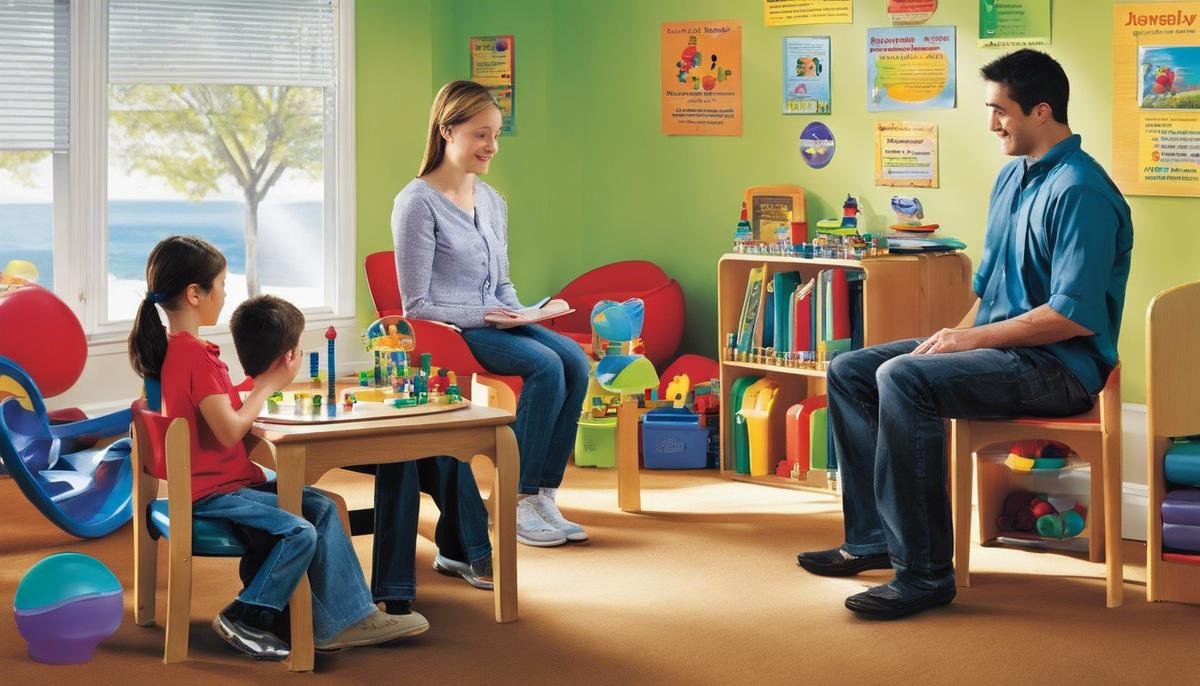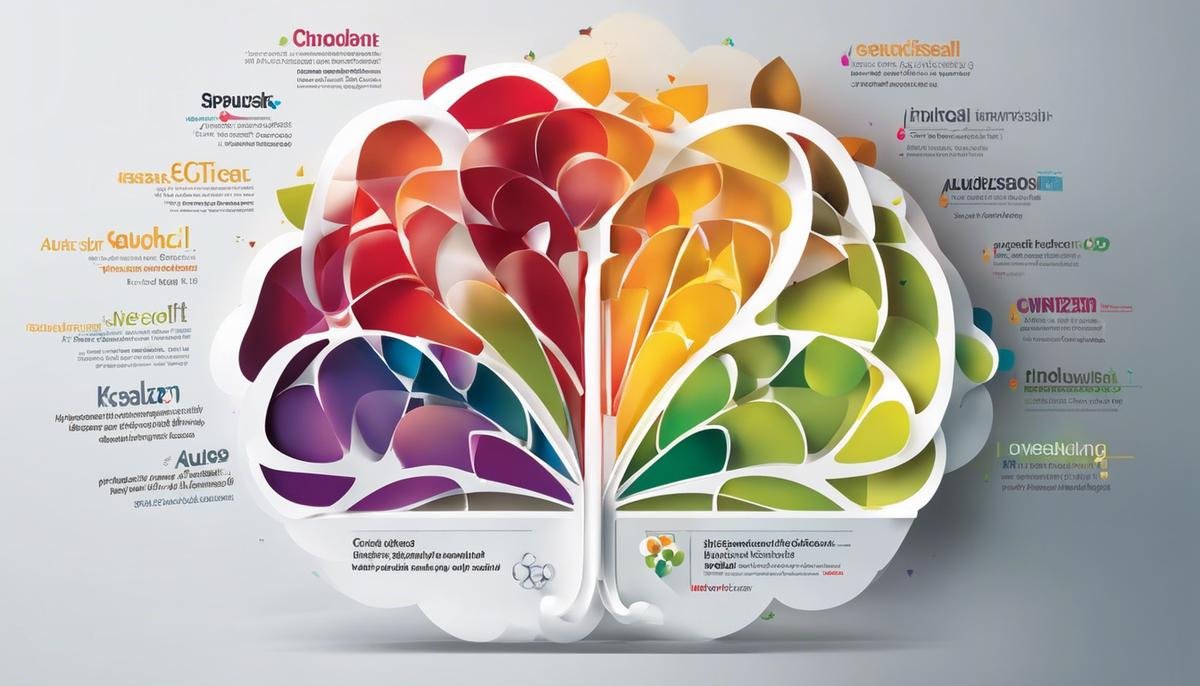
As we progress into 2023, our understanding and interpretation of Autism Spectrum Disorder (ASD) have taken great strides, offering newfound hope to countless families and individuals. Guided by advancements in genetics, neurology, and psychology, the world of science reveals a more rounded perspective on this neurological diversity. This essay illuminates the latest breakthroughs and promising interventions in autism research, and how it all culminates in enriching the lives of people with ASD. It offers not only a comprehensive exploration of autism but also unveils the practical implications these findings bear on everyday family life.
Understanding Autism in 2023
A New Understanding of Autism in 2023: Progress and Perspectives
Once perceived as a mystery, autism is making great strides in its understanding, especially as we step into the dynamic year of 2023. It’s a beautiful progress, interlacing modern science with broader social acceptance that, hopefully, eases the journey for families dealing with autism.
First and foremost, it’s critical to remind ourselves that autism, or autism spectrum disorder (ASD), is not a disease to be cured; rather, it’s a neurodevelopmental difference, present from early childhood, that affects how a person perceives and interacts with the world around them. It’s a spectrum because, as we’ve learned, there’s a wide variance in the symptoms and severity that individuals may experience.
In 2023, updated research provides a deeper understanding of why autism happens. Though it’s still considered multifactorial, meaning there’s no single “cause,” recent developments highlight the crucial role of genetics combined with environmental factors.
Notably, technological advancements have provided unique insights into the workings of autistic brains, debunking pre-existing myths. For example, there’s growing evidence debunking the myth that people on the autism spectrum lack empathy. In reality, they might feel too much, a concept known as ‘hyper-empathy’. This new understanding helps guide better and more constructive interventions and therapies.
Also, therapeutic resources in 2023 have vastly innovated, marked by personalization and early intervention. With increased awareness, identifying early signs of autism has improved, allowing for more timely interventions which are proven to be highly effective. Therapies now are person-centered, considering the interests, skills, and needs of the individual with autism, rather than adopting a ‘one-size-fits-all’ approach.
Amidst all this scientific progression, there’s another heartening dimension to autism understanding in 2023 – the push towards acceptance and inclusivity. Advocacy and awareness efforts now focus more on understanding and appreciating the unique perspectives that these individuals bring, rather than fixating on their deficits.
Communities are on the roadway to greater inclusion, starting from play dates at the park, classrooms and workplaces. Schools are making concerted efforts to provide equal opportunities for students with autism by incorporating inclusive education, and workplaces are ramping up efforts to become more autism-friendly.
The ripple effect spreads to media and entertainment. More representation of diverse autistic experiences helps demystify and normalize the condition, contributing to a climate of acceptance. Such representation helps to shift conversations from ‘dealing with autism’ to ‘living with autism.’
So, how are we understanding autism in 2023? It goes beyond just understanding; we’re embracing, acknowledging, and appreciating individual differences and strengths. We’re celebrating neurodiversity, acknowledging that different isn’t defective – it’s merely different, and that’s enriching in its own unique way. And with every step taken on this progressive journey, we’re making the world a more welcoming place for every child, every individual on the autism spectrum.
Bravo, 2023! Continue to foster this compassion in action, marrying science and society for a future where everyone feels valued, acknowledged, and included.

Latest Breakthroughs in Autism Research
Just when you thought we’ve covered the most important aspects of autism, there are so many more amazing advancements in the world of autism research in 2023. These breakthroughs show incredible promise for our understanding and support of individuals on the autism spectrum.
One trailblazing happening in the field is the discovery of microglia, a type of brain cell that seems to function differently in those with autism. Instead of helping to maintain healthy brain connections, these cells appear to become overzealous, leading to changes in the brain’s wiring. This discovery not only provides new insight into why autism occurs but also potentially uncovers new avenues for treatments.
On the other hand, technology is also being harnessed in ingenious ways to aid in autism research. One of the most groundbreaking uses is the development of AI (Artificial Intelligence) models that help in predicting the likelihood of a child developing autism. This early prediction can pave the way for interventions to be put in place even sooner, potentially alleviating some of the challenges faced by those on the spectrum.
Another riveting advancement is happening in the realm of genetics. Researchers have identified hundreds of genes associated with autism in recent years. In 2023, a new technique called “gene editing” has allowed scientists to understand these genes better, and potentially even improve the symptoms of those diagnosed with autism. Of course, this is a sensitive and complex issue, but the potential is certainly exciting.
From there, let’s talk about the innovative treatments that are making headlines. Cognitive enhancement therapy has made significant progress, aiding individuals on the spectrum in improving their social cognition and executive functioning. This form of therapy uses informational and experiential learning techniques, helping those with autism better manage social situations, decision-making, flexibility, and even problem-solving.
In the continuing quest to debunk myths about autism, researchers are now delving into empathy. Contrary to the often-held belief that individuals with autism lack empathy, studies are now showing that this is not the case at all. In fact, many people with autism exhibit a heightened level of emotional empathy, feeling the distress of others more intensely than the typical person. This crucial breakthrough shifts our understanding and attitudes towards autism, potentially contributing to a more accepting and inclusive society.
And let’s not dismiss the ongoing research into assistive technologies. Virtual reality, in particular, is being utilized to help autistic individuals practice social situations without fear or anxiety. These safe, virtual environments can be tailor-made to suit each individual’s needs, allowing them to gain confidence and skills in a non-threatening atmosphere.
The journey to understanding autism is far from over, indeed. While we’ve made strides in recent years, the breakthroughs of 2023 are pushing the benchmarks even further. As our understanding grows, so too does our acceptance and ability to provide meaningful support. Together, these breakthroughs bring us toward a brighter and more inclusive future for those on the autism spectrum.

Promising Interventions
Autism management interventions are continually evolving as we learn more about the intricacies of the neurodevelopmental condition. To foster a world that’s inclusive and accepting, it’s essential to consider, understand, and value the promising therapies available. Some of these prominent interventions include modifications to behavioral and developmental therapy, job-related coaching, physical and speech therapy, pharmaceutical treatments, and even aquatic therapy.
Of particular note, Behavioral and Developmental Interventions, such as Applied Behavioral Analysis (ABA), have shown to be remarkably effective in managing autism symptoms. ABA primarily emphasizes structuring environment to improve social, communicative, and learning skills while reducing undesired behaviors. Each ABA program is tailored to the individual needs of the person, thereby maximizing its effectiveness.
The field of occupational therapy is another promising avenue helping children with autism develop the skills needed for everyday activities. Tasks like feeding oneself, dressing, interacting with peers, or even participating in play can be areas of intervention. These therapists work in close collaboration with educators, parents, and other concerned individuals to ensure the child’s overall development and participation in life activities.
For some, pharmaceutical treatment might be an appropriate route. Please note, no medication can ‘cure’ autism, but some can aid in managing certain symptoms. This could include hyperactivity, inability to focus, or anxiety – all of which may accompany autism in some cases. It’s crucial to consult doctors and specialists for personalized and thoughtful pharmaceutical intervention.
Speech and language therapy is another remarkable intervention. With the help of a certified professional, individuals with autism can improve their communication skills, both verbal and non-verbal. This point is emphasised due to the fundamental role communication plays in every aspect of life.
And then there’s something completely different, yet strikingly effective: Aquatic Therapy. You may wonder, how water can help in managing autism symptoms? Think of the calming effect that a gently flowing stream or a quiet lake has on many of us. Water creates a unique, non-threatening and calming sensory environment which can do wonders in terms of bringing about a relaxed state, making learning and therapy enormously effective! Activities with floats or other aquatic toys can also help improve coordination and dexterity.
Looking forward, one must emphasize on the benefits of technology in managing autism. Innovative solutions, such as computer programs and apps, have been designed to improve communication and social skills. There’s also considerable progress in the field of Virtual Reality (VR) to provide individuals with autism real-world practice in a controlled setting.
Of course, we must remember that everyone is unique, and there is no one-size-fits-all when it comes to interventions. The most effective treatment focuses on the individual’s abilities, strengths, challenges, and goals. It’s an ongoing journey filled with discovery, understanding, and of course, lots of love and support. Let’s value the neurodiversity that makes each individual with autism extraordinary.
As we tread this path, let’s not forget the importance of community and society in this endeavor. Working hand-in-hand, educators, families, researchers, healthcare professionals, and society at large can do wonders in creating a world that not just accepts but celebrates our little stars – who’re, in truth, not different, just unique.

Enriching Lives: Autism in Everyday Family Life
When it comes to bettering the daily lives of those with autism, the breakthrough research findings of 2023 have provided leaps and bounds of progress. Technology and science advancements have paved the way for more effective Autism management interventions and therapeutic practices. Let’s dive in to discover how these innovations are bringing about positive changes.
One exciting finding is the refinement of Applied Behavioral Analysis (ABA). ABA therapy is a time-tested and vital tool in helping people with autism improve crucial skills such as communication, social interactions, and learning. Leveraging 2023’s advancements, therapists can now provide more personalized and targeted interventions, which can be adjusted in real-time in response to the individual’s progress.
Alongside the improvements in ABA, Physical and speech therapy have also seen significant enhancements. By incorporating the latest research findings, these therapies are becoming more adapted to personal needs and capabilities. This tailoring makes the therapeutic process more enjoyable and thereby more impactful.
Additionally, researchers have contributed to incredible strides in job-related coaching for those on the autism spectrum. Through comprehensive coaching programs, they convey essential skills for workplace success, such as task management and social communication. This not only enriches these individuals’ lives but substantively contributes to our diverse society.
Another evidence of substantial progress is in pharmaceutical treatments. The latest drugs are more finely tuned to manage Autism symptoms without severe side effects. While pharmaceutical treatment is not a cure, it can greatly alleviate some symptoms and improve quality of life.
A particularly refreshing development is in Aquatic Therapy. Tuning into the soothing and calming effects of water, this therapy assists in improving muscle strength, coordination, and relaxation. It’s a holistic approach that promotes both physical well-being and mental calm.
One of the significant progress in 2023 is the use of technology, specifically Virtual Reality (VR), in managing autism. VR provides a safe and controlled environment in which individuals can practice social interactions and encounter various scenarios. It not only aids in skill acquisition but also builds confidence.
Lastly, 2023’s research exhorts the importance of acknowledging the individualized nature of Autism. It emphasizes that no two individuals on the spectrum are identical – each has unique strengths and challenges. Thus, requiring personalized approaches to treatment.
Community has always been a powerful support system. The research reminds us of the crucial role played by society in fostering warmth, acceptance, and support. By embracing these research findings and applying them in a holistic manner, we are better equipped to provide individuals with autism a nurturing, inclusive, and encouraging environment.
Riding on the waves of profound and promising research, the journey to improve the everyday lives of those with autism is becoming less arduous. While there is certainly a long way to go, we are driven by hope, resilience, and tireless dedication to making this world a better place for everyone, one day at a time. Let’s continue our efforts and love unconditionally, ushering a world where everyone, autism or not, feels loved, accepted, and at home.

Autism research in 2023 has paved the way for diverse methods of understanding and supporting individuals with ASD. Innovative interventions and breakthroughs are steadily refashioning our approach towards autism, fanning a beacon of optimism amidst families touched by ASD. As our knowledge expands, it seizes the potential to profoundly revolutionize life not just for individuals with autism, but also the cocooning family environment. Live through it, embrace it, and find solidarity in deeply personal and relatable experiences. This entire journey portrays a landscape of overcoming, acceptance, and continual learning, setting the stage for a more inclusive 2023 and beyond.





